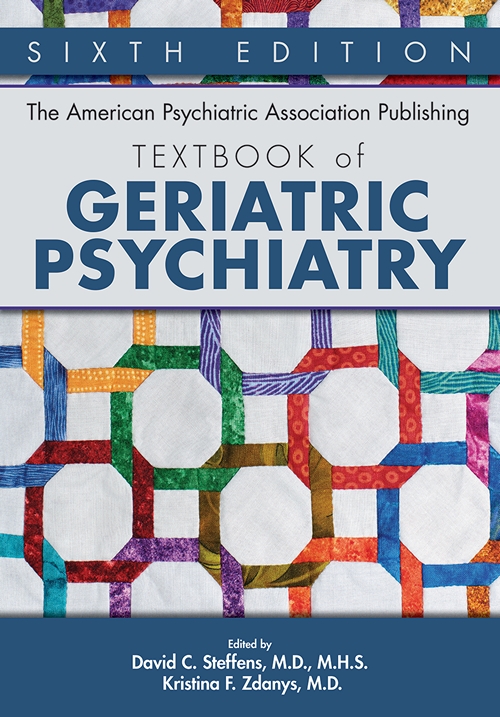Sections
Excerpt
For decades, psychiatric clinical diagnoses, including those in geriatric psychiatry, have relied on the description of clinical syndromes. The flow of events leading from variation in a gene sequence to the development of various cognitive, behavioral, and emotional symptoms that encompass psychiatric disorders of later life is not straightforward. However, the understanding of these processes is well under way and will significantly influence the practice of geriatric psychiatry in the 21st century. In 2015, the Precision Medicine Initiative (Terry 2015) established a new direction for medical research and practice, including geriatric psychiatry. The completion of the Human Genome Project in the mid-2000s marked a milestone in genomics. Since then, the field has rapidly moved forward, with the first genomic mapping of a living human followed by the more recent availability of direct-to-consumer genome sequencing. Personalized genome sequencing (Ceyhan-Birsoy et al. 2019; D’Angelo et al. 2016) is a reality that will have a profound impact on the field. Family, twin, and adoption studies have demonstrated robust genetic influences in schizophrenia, bipolar disorders, and Alzheimer’s disease (AD), and conventional and newer approaches have advanced the understanding of the specific genetic components of these disorders. In this chapter, we have attempted to 1) summarize key advances in genomic science, 2) introduce the growing field of genomic medicine (especially as it relates to genetic testing), and 3) review the current state of understanding of the genetics of mental disorders of aging and later life.
Access content
To read the fulltext, please use one of the options below to sign in or purchase access.- Personal login
- Institutional Login
- Sign in via OpenAthens
- Register for access
-
Please login/register if you wish to pair your device and check access availability.
Not a subscriber?
PsychiatryOnline subscription options offer access to the DSM-5 library, books, journals, CME, and patient resources. This all-in-one virtual library provides psychiatrists and mental health professionals with key resources for diagnosis, treatment, research, and professional development.
Need more help? PsychiatryOnline Customer Service may be reached by emailing [email protected] or by calling 800-368-5777 (in the U.S.) or 703-907-7322 (outside the U.S.).



